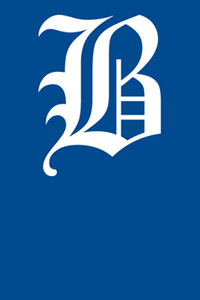
The Bank of Thailand's Monetary Policy Committee (MPC) on Tuesday issued a clear message that it wants to help stem the appreciation of the baht by discouraging foreign capital inflows, rather than cutting interest rates.
The increased value of the baht is a threat to small- and medium-sized exporters and is also bad for tourism amid weak global demand. In theory, the stronger local currency should present opportunities for Thai companies to buy cheaper imports and encourage tourism businesses to improve the quality of their products and services. But in reality, most firms have yet to adjust to the significant currency appreciation.
Since the start of the year, the baht has gained more than 6% against the US dollar, making it one of the fastest appreciating currencies in the world, on par with the Mexican peso.
With the Pheu Thai Party now in its second year in power, its populist, consumption-driven projects, such as the rice pledging scheme, tax rebates for first-car buyers, and community funds, have led to an improved sentiment in the local economy. These, coupled with a strong rebound from the 2004 tsunami and 2011 floods, have underpinned the nation's economic growth. Along with the improving economy has come an increase in the volume of capital inflows, much of which has come from Japan.
This has been stimulated by the Bank of Japan's decision to print more money to spur its long-dormant economy. As a result, excess funds have found their way into Thailand where bond coupons have been among the best in the world.
As more money flows in, so the baht continues to appreciate and bond yields remain high.
You can blame the situation on Thailand's brisk economic growth, or the regulators' failure to balance capital inflows with imports and outbound investment. I think it is both.
In a bid to stem the rapid rise of the baht, the Finance Ministry has called for a reduction in interest rates. However, the MPC has rejected that option, reasoning that cutting the rate from 2.75% could spur asset price and credit bubbles.
The MPC said the benchmark rate is currently at its lowest for many months, while several surveys have indicated higher rates of household debt.
Initially, the central bank was happy to leave the movement of the baht to market forces. However, when the appreciation "breached economic fundamentals", the central bank adjusted its position and expressed a willingness to buy US dollars from the market.
However, this could at best smooth out only short-term volatility.
The MPC's statement on Tuesday night reaffirmed its stance against lowering bond yields by cutting the policy interest rate. Such a move would not be practical, it said.
Instead, it agreed that a "policy mix", agreed in cooperation with the Finance Ministry and other agencies, would be more desirable.
This is a strong message, and issues a clear warning to investors that measures to discourage inflows to the bond market are now likely.
It also brings to mind the draconian capital-control measures imposed by the central bank in 2006. At that time, foreign investors were required to set aside 30% of their total capital as a reserve. It was not effective.
This time around the central bank said it has an improved database and therefore should have a better overall picture of foreign capital inflows. As a result, the measures to be implemented can be better targeted at troubled areas rather than across the board, as they were in 2006.
Another difference is that over recent weeks the central bank has repeatedly warned the market that volatile foreign inflows are unwelcome.
Whichever policy instruments the Bank of Thailand chooses to introduce, its efforts to stabilise the currency will come with a cost.
But I believe the cost will be worth it. Thai businesses stand to lose far more if they continue to believe that the authorities will always come to their rescue and shoulder the cost of currency risk management.
Parista Yuthamanop is Senior Economics Reporter, Bangkok Post.
